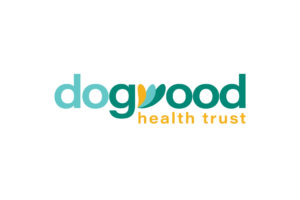The study’s WNC-based authors will present their findings during a Nov. 16 webinar
Asheville, N.C. – Dogwood Health Trust announced today the availability of another comprehensive data assessment available to the region: an analysis of the growth capital ecosystems in Western North Carolina. The WNC Capital Landscape Assessment is the first-ever study of its kind for the region and was led by Shining Rock Ventures, a WNC-based firm that supports the success of enterprises and entrepreneurs in rural and mountain communities around the world. The full report is available for free download on Dogwood’s website. To further share and review the findings in more detail, Dogwood also will host a webinar on November 16 at 12:00 p.m. All members of the community are invited to attend and can register using this link.
Jesse Fripp, Shining Rock’s President, a Southern Appalachian native and a resident of WNC, and David Lilly, President of Lilly Consulting Group and a resident of WNC, served as principal authors. Fripp and Lilly were supported by researchers Collin Huske and Maxwell Olle. Dogwood commissioned this newest study to gain a broader view of the community of funders, lenders, investors and supporting service providers across the region. Though Western North Carolina has a myriad of resources focused on accelerating entrepreneurial activity at various stages of enterprise development, there has been limited coordination among them up to this point.
“We are delighted that the research shows consistent funding available for a variety of challenges and opportunities across the region,” said Sarah Thompson, Vice President – Economic Opportunity at Dogwood Health Trust. “The WNC Capital Landscape Assessment has identified these sources of capital and will serve as a tool for entrepreneurs and small business owners in our region to quickly identify and approach sources of funding that best align with their specific stage of development. It is our hope that these findings can help enhance the consistency, collaboration and access to appropriate capital, knowledge and support services along every stage of enterprise development.”
Key findings from the WNC Capital Landscape Assessment included:
- Capital of all kinds (early, mid-stage, late-stage; debt, equity, etc.) is available, but only about 3-5% of entities are getting access to that capital from within the region (excluding commercial banks).
- WNC has a fragmented and uncoordinated capital and enterprise enabling ecosystem.
- The startup and pre/seed-stage segments, which are critical to building a healthy long-term pipeline of successful ventures, are underfunded.
Additionally, the assessment identified the following (based on identified regional investors and lenders historic and/or active current portfolio):
- More than $65 million in regionally focused CDFI lending assets for ventures that are viable but not serviced by commercial lenders.
- Nearly $285,000 in pre-seed ‘angel’ quasi-equity and equity funding, and more than $10 million in seed and early-stage equity and venture funding with some form of regional investment lens.
- Close to $500,000 in start-up and pre-seed grant funding support across the region, enabled by more than a dozen county, regional and state-level incubators, accelerators, training, networking, mentoring, coaching organizations, programs and initiatives of various types.
- Just over $53 million in external venture capital investment in 2021. This ranked the region 7th out of the 13 Congressional districts in North Carolina for venture funding, but was invested in only nine startup companies.
As the study’s authors note, “these numbers break down to less than 1,400 WNC small businesses — start-ups, pre-seed, and seed-stage ventures — getting access to the capital they need each year to grow, thrive, generate jobs, improve quality of life and inform social determinants of health across the region.” Said another way, roughly only 1 in every 30 existing small businesses in WNC are getting access to startup, operating and/or growth capital from formal sources.
“As we have done for more than a year, Dogwood will continue to gather key data and
commission studies within our four strategic priorities to better inform our investments and provide region-specific data to support the work of our partners,” said Dr. Susan Mims, CEO for Dogwood Health Trust. ”Ultimately, we want to help create an economic ecosystem that serves as a driving force for creating and sustaining a healthier Western North Carolina, including a multi-generational and equitable quality of life for all the region’s residents.”
The study’s authors, Jesse Fripp and David Lilly, will present their findings and offer a high-level analysis in addition to answering questions during an informational webinar on Nov. 16, 2022 at 12:00pm. Anyone is welcome to attend and may register here.
###
About Dogwood Health Trust
Dogwood Health Trust is a private foundation based in Asheville, North Carolina with the sole purpose of dramatically improving the health and wellbeing of all people and communities of 18 counties and the Qualla Boundary in Western North Carolina. Dogwood Health Trust focuses on innovative and equitable ways to address the many factors that contribute to overall health and wellbeing, with a focus on housing, education, economic opportunity, and health and wellness. Dogwood Health Trust works to create a Western North Carolina where every generation can live, learn, earn and thrive, with dignity and opportunity for all, no exceptions. To learn more, please visit www.dht.org.



